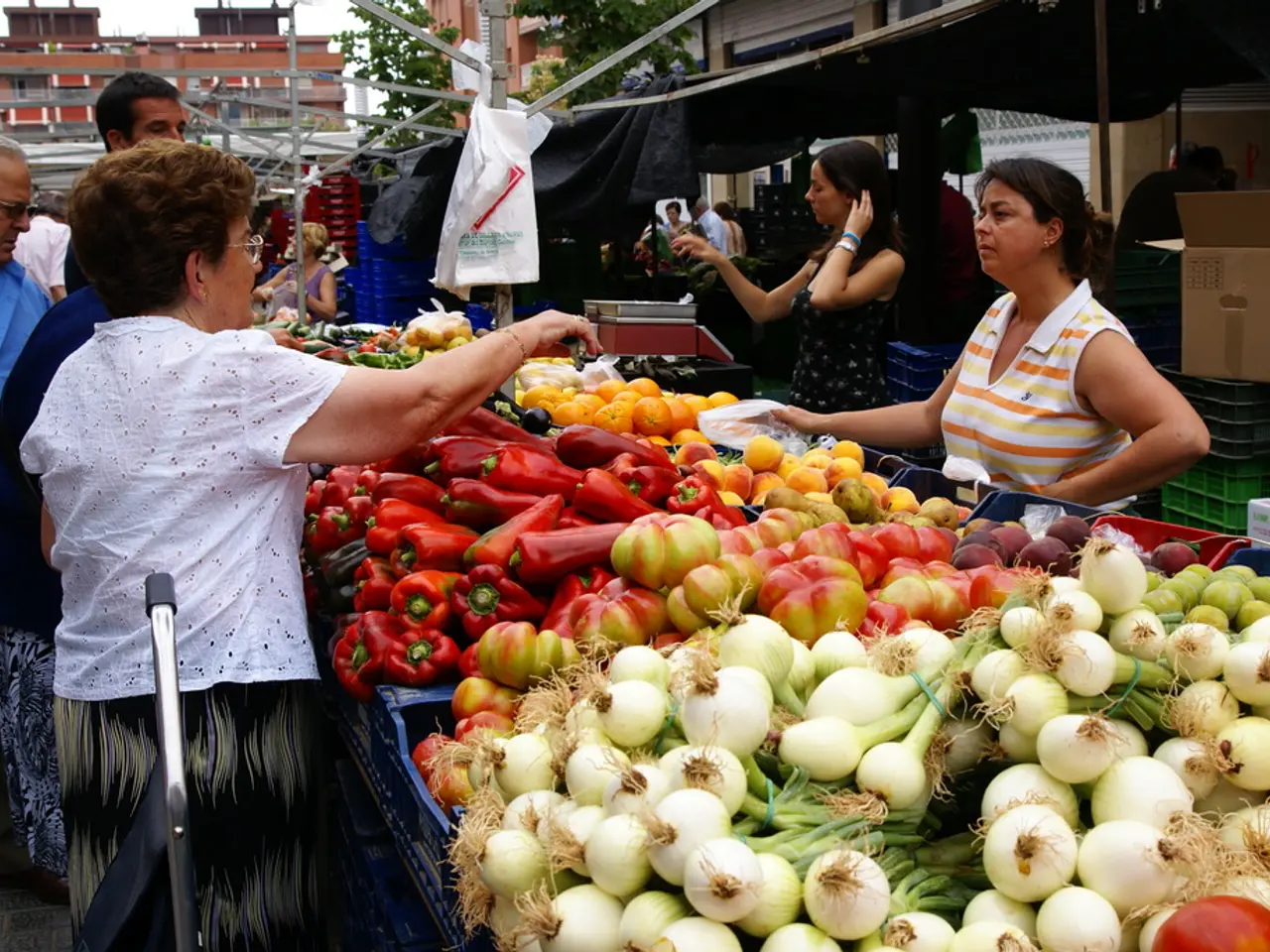Unveiling hidden expenses: Science reveals the detrimental impact of plastic usage
The Lancet, a renowned medical journal, has launched the Lancet Countdown on Health and Plastics, a groundbreaking initiative aimed at monitoring the health impacts of plastics throughout their entire life cycle. From production to disposal, this global tracking system will provide robust data on the effects of plastics and their chemical components on human health.
The Lancet Countdown employs a full life cycle approach, known as "cradle to grave," tracking four interconnected domains: emissions and hazardous releases at every stage of plastics' life cycle, environmental and biological exposures, health outcomes, and policies, laws, public awareness, and societal actions addressing plastic pollution.
The initiative's ultimate goal is to equip policymakers and the public with clear, evidence-based information, mirroring the international plastic pollution treaty process and ensuring that human health remains central to global decisions. The first full report from the Countdown is expected in 2026.
Meanwhile, the petrochemical industry is participating in global talks to agree on a plastic pollution treaty. However, less than 10% of plastic is currently recycled, and much of the plastic that is not recycled ends up in landfills, the ocean, or is burned, releasing toxic emissions.
The talks aim to mitigate the health and environmental impact of plastic across its full life cycle, agreeing on terms for a legally binding international treaty to curb plastic pollution. Climate change exacerbates the health risks associated with plastics, making it crucial to address this issue urgently.
France is leading the charge in UN talks to tackle the global plastic pollution crisis. Previous rounds of negotiations ended without consensus due to pushback from oil-producing countries and industry lobby groups. Advocates argue that a robust, enforceable treaty is necessary to change the trajectory of plastic pollution.
The Lancet Countdown project, led by institutions including Boston College, Heidelberg University, and the Minderoo Foundation, aims to serve as a watchdog for the treaty's effectiveness, tracking key indicators and giving governments and the public the tools to demand real accountability.
Microplastics, particles less than five millimetres in size, have been found everywhere, from the deepest oceans to remote mountaintops and inside the human body. They have been linked to cardiovascular disease, inflammation, and hormonal disruption. In some regions, plastic waste creates breeding grounds for disease-carrying mosquitoes and antibiotic-resistant bacteria.
Post-production, plastics release a cocktail of chemicals into consumer products and the environment. Workers in plastic manufacturing plants are exposed to harmful chemicals and airborne pollutants. One study has suggested possible associations between microplastics and increased risk of heart attacks and strokes.
The world's annual plastic production is projected to triple by 2060, if major policy shifts are not implemented. In the face of this alarming prediction, a robust, enforceable international treaty could be the key to reducing plastic harm and safeguarding human health.
The Global plastic treaty talks are taking place in Geneva. It's a critical moment in history, and the Lancet Countdown on Health and Plastics stands ready to provide the evidence-based insights needed to make informed decisions.
- The Lancet Countdown, a global initiative tracking the health impacts of plastics throughout their life cycle, will equip policymakers and the public with clear, evidence-based information.
- In some regions, plastic waste creates breeding grounds for disease-carrying mosquitoes and antibiotic-resistant bacteria, posing a significant health risk.
- From the deepest oceans to remote mountaintops, microplastics, particles less than five millimetres in size, have been found and linked to cardiovascular disease, inflammation, and hormonal disruption.
- Workers in plastic manufacturing plants are exposed to harmful chemicals and airborne pollutants post-production, with one study suggesting possible associations between microplastics and increased risk of heart attacks and strokes.
- The annual plastic production is projected to triple by 2060, highlighting the urgent need for a robust, enforceable international treaty to reduce plastic harm, safeguard human health, and combat the climate crisis.




